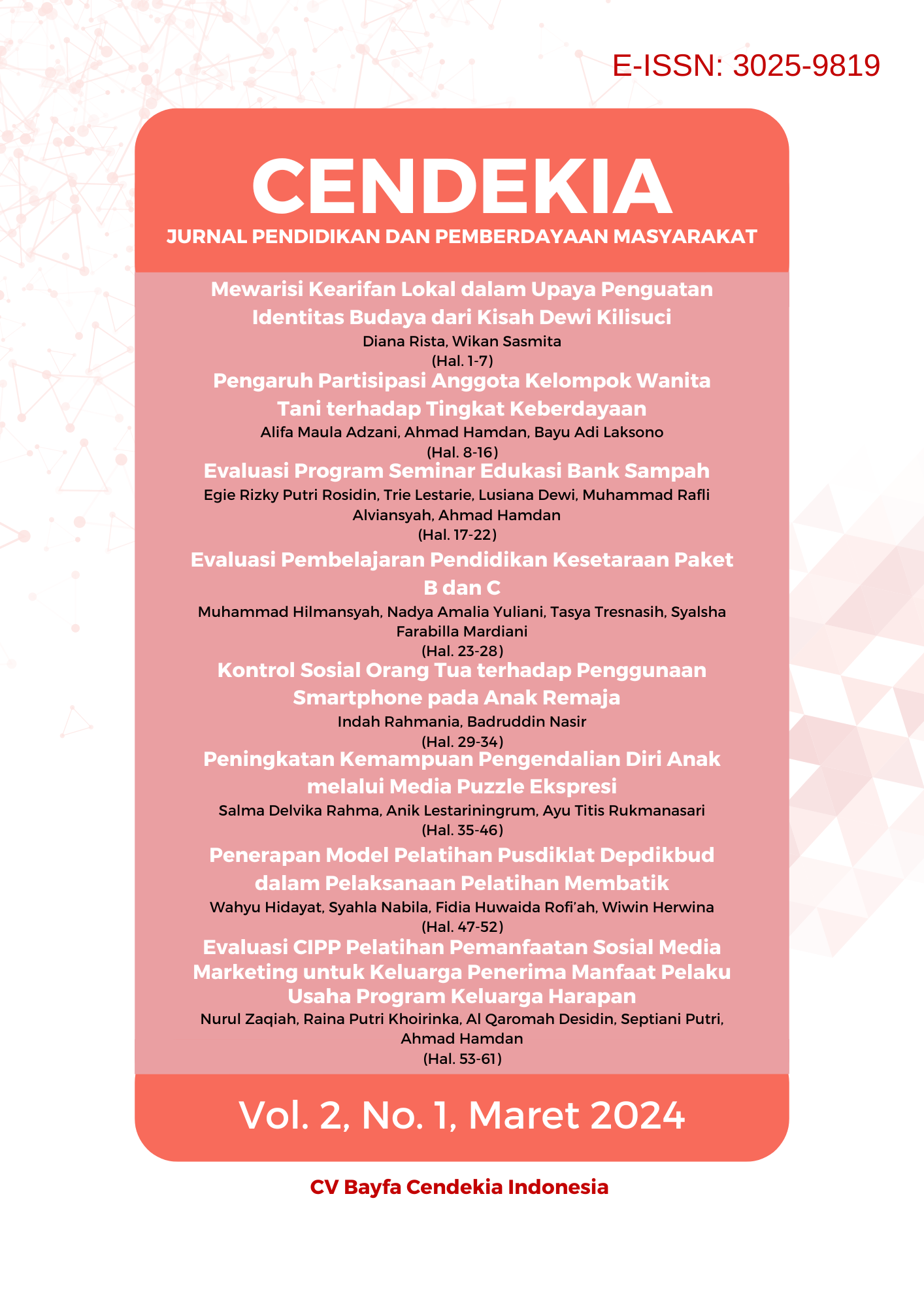Peningkatkan Kemampuan Pengendalian Diri Anak Melalui Media Puzzle Ekspresi
DOI:
https://doi.org/10.1234/cjppm.v2i1.135Kata Kunci:
Early Childhood, Expression puzzle media, self-controlAbstrak
This research is motivated by the results of the researcher's observations and experience, that the social emotional development of children at the DINNOV Al-Birru Ngadiluwih Kindergarten, Kediri Regency in the aspect of self-control ability is still low. This is caused by a lack of stimulation given to children. To overcome this, the teacher only takes action by advising and providing understanding either through telling stories about the prophet or through prophetic hadiths to the child. Therefore, it is necessary to take action in the form of research as an effort to overcome this problem. The problem of this research is: Can expression puzzle media improve the ability of self-control in kindergarten children at A DINNOV Al-Birru Ngadiluwih, Kediri Regency?
This research uses a Classroom Action Research (PTK) approach with the research subjects being children in the Musa group (TK A) aged 4-5 years at DINNOV Al Birru Kindergarten Ngadiluwih Kediri. This research was carried out in three cycles from August to October and each cycle consisted of two meetings, using instruments in the form of lesson plans, children's performance assessment sheets, and learning activity observation sheets.
The conclusion of this research is that learning activities through expression puzzle media have proven to be effective in increasing children's self-control in the aspect of discipline, being patient in waiting their turn and being responsible for the Musa group or group A at DINNOV Al-Birru Ngadiluwih Kindergarten, Kediri Regency, so that the research hypothesis is accepted with the data obtained in the form of an increase in pre-action by 25%, cycle I by 50%, cycle II by 50%, and cycle III by 75%. Based on these results, it is recommended that expression puzzle media be used for children aged 4-5 years or developed to improve the self-control abilities of children aged 5-6 years through varying activities.



